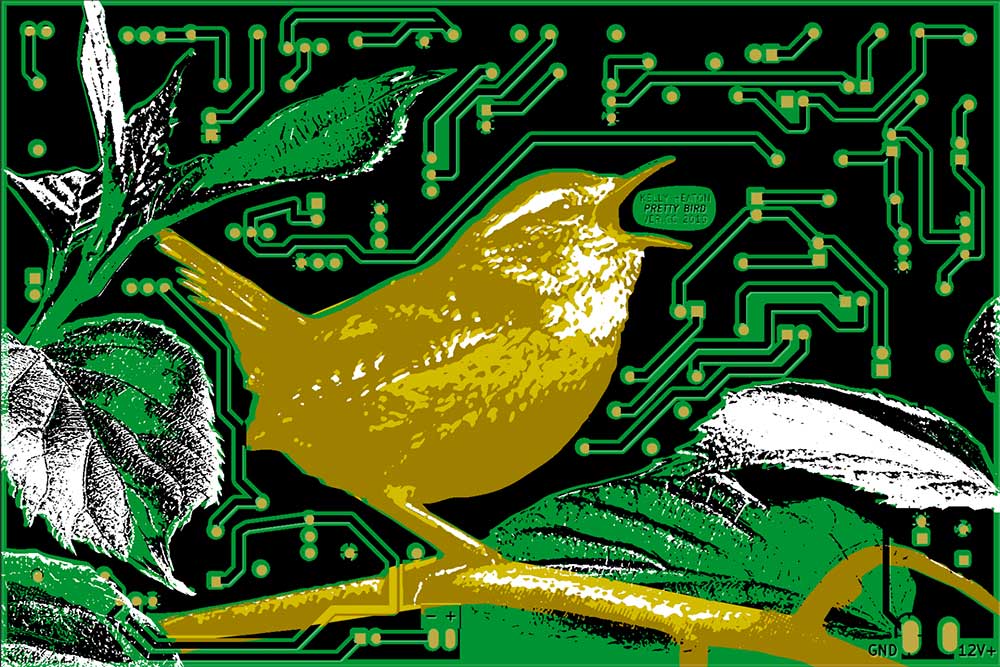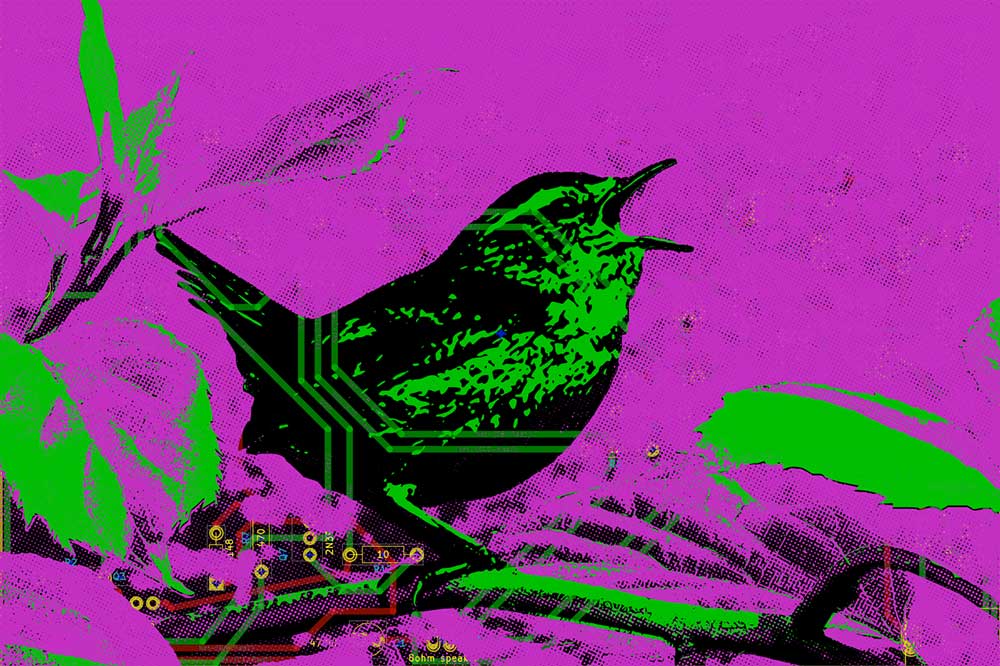Prototype for an analog electronic crow product coming soon! Stay tuned for launch announcement.
sound
Two Cricket Tableaux /
Two Cricket Tableaux (artist proofs 1 of 3), 2020. Archival inkjet print, printed circuit boards, and analog electronics on panel with artist-made frame. 8” x 10” x 2”
Night birds in a PCB /
Screen shots from a PCB that I’m designing — an analog electronic bird song generator with a primitive interface for adjusting the song, aka “patch bird.”
Analog electronic warbler experiment /
This analog electronic birdsong generator circuit is comprised of 5 transistor oscillators, several passive filters, and an audio transformer “voice” generator.
Pretty Bird ver. CC 2019 /
Here it is at last: my edition of 150 printed circuit boards and associated components, “Pretty Bird ver. CC,” 2019. This multiple was commissioned by Creative Capital for their 20th summer retreat celebration. I designed the artistic circuit using discrete hardware to generate waveforms from a 12 volt DC power supply, visible as blinking LEDs and audible through an 8 ohm speaker. Under the right lighting conditions, the sound is reminiscent of “pretty bird,” a song of the Carolia wren. There are no audio recordings or software algorithms involved in this effect — it’s entirely analog electronic. In the upper left corner of the circuit is a light-dependent resistor that affects the frequency of a negator oscillator, as I demonstrate in the video by changing the ambient light. It’s fascinating to me that a small quantity of common transistors, resistors, capacitors, and diodes can create vibrations that are so life-like. Similarity or simulacrum? The spark of life.
Pretty bird process /
Various images from the process to design a pretty bird printed circuit board for manufacture. April, 2019
life-like bird song circuit /
This simple circuit sings like a bird, even with chirp variation! This effect is caused by various discrete non-linear components in a breadboard. I tried to build a soldered version and, while it sings, I haven’t been able to reproduce the life-like quality of this circuit (hence my theory that parasitic capacitance is at play).
In the front half of the breadboard, you see three astable multivibrators that create an irregular tempo. These are connected back to various locations in a “chirp generator” circuit (based on the classic doorbell canary design with an audio transformer).
Spring peeper oscillator /
Oscillator aka astable multivibrator circuit laid out in the form of a spring peeper.














